Sweet Baby Inc. CEO Kim Belair Reflects On Company Backlash, Says Anti-DEI Critics Are Coming Together Under The “Rallying Cry Of Far-Right Supremacy”
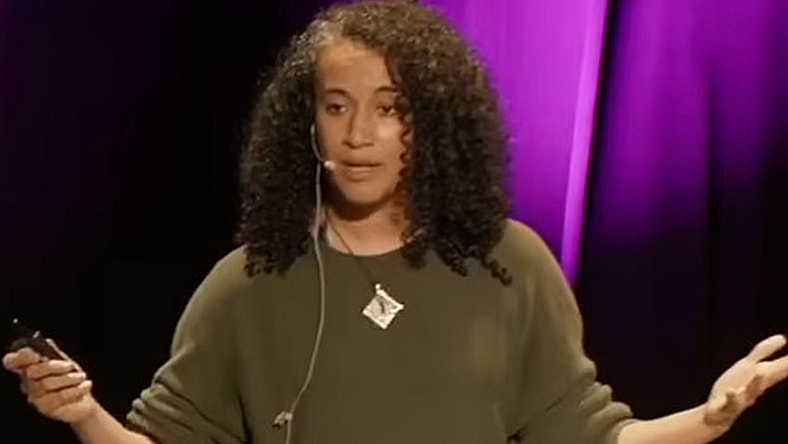
In the opinion of company CEO Kim Belair, not only has the ongoing discourse surrounding the work of Sweet Baby Inc. amounted to nothing more than a “campaign of harassment”, but its critics’ opposition to the concept of corporate-styled ‘Diversity, Equity, and Inclusion’ is an indicator of their “far-right” ideals.
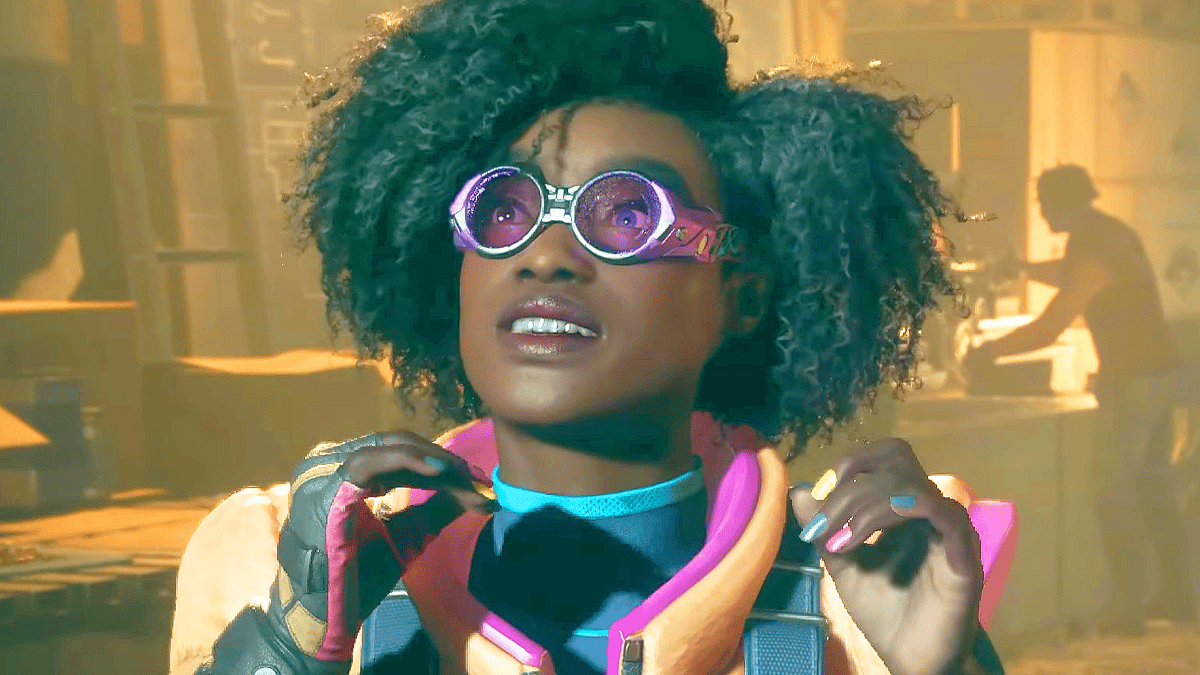
Belair offered her take on the situation while hosting a keynote panel at the recent 2024 edition of the XOXO Festival, which per its official website is “an experimental festival celebrating independent artists and creators working on the internet” whose various speakers typically discuss “the emotional experience of making things online, with difficult subjects including financial insecurity, anxiety, depression, mental health, impostor syndrome, burnout, racism, sexism, and online harassment.”
Taking the stage on Saturday, August 24th, the CEO specifically centered her panel on the aforementioned wave of criticism and discussion currently being leveled to wards Sweet Baby Inc., in particular her and her team’s experiences in attempting to weather the storm.
“Hello, I’m Kim Belair,” she began with an introduction. “In my circles, I’m largely considered, I think, a relatively nice person. These are my dogs, Sage and Flaky. These are my cats, Tag and the Grey Boy. I really enjoy Lego. I collect skulls and taxidermy. And I also really like playing a lot of video games, including Elden Ring.”
“[But] By day,” she then joked, “I am the crazed CEO of Sweet Baby Inc., the DEI-obsessed censorship mafia who is currently ruining and woke-ifying all of the video games that you’ve ever played.”
“If you haven’t heard of Sweet Baby Inc., thank you – that’s actually how I prefer it,” she continued. “[If you have] You’ve either heard of us from all of those wonderful games [we’ve worked on] or perhaps you’re familiar with the nearly year-long hate campaign that has been waged against us as a team. Unfortunately, today I’m here to talk about that,
in a talk I’m going to call ‘What Happens When You Get Harassed: A Sweet Baby Story.'”
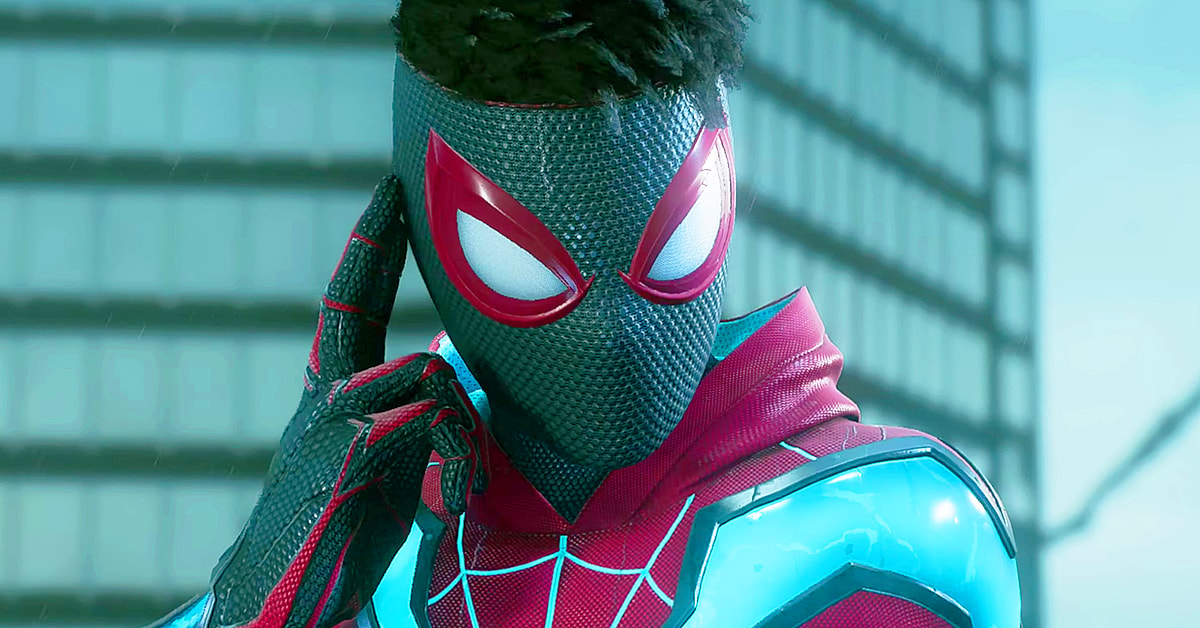
Doing her best Doc Brown impression, Belair then took audiences back in time to the company’s origin point, explaining “We started out in 2018, but it was really in 2020 that we came to any kind of industry prominence. “
“It was on a backdrop of the COVID quarantine, sending everybody home from the office,” Belair recalled. “#MeToo
sweeping through the games industry as various bad actors were named and shamed—appropriately, I should say—and also the Black Lives Matter protests were in full swing. At the time, the industry was kind of responding in the way you might imagine:with a lot of corporate over-promising. But within the writing sphere, there were a lot of offers for portfolio reviews. Like, ‘Hey, if you’re marginalized, or especially a Black dev, we would love to give you a portfolio review.” And I want to say, I love portfolio reviews.’
“But the problem with portfolio reviews is that they also assume it’s a meritocracy, right?” she continued. “They assume the problem is your portfolio, and not the fact that maybe there’s a lot of other reasons you’re not getting the gig. So, knowing that there were myriad problems to be solved, we created an email called [email protected], and we said, “Hey, if you’re a developer who wants to get into the industry, if you’re someone already in the industry and you want to talk, just talk to us.'”
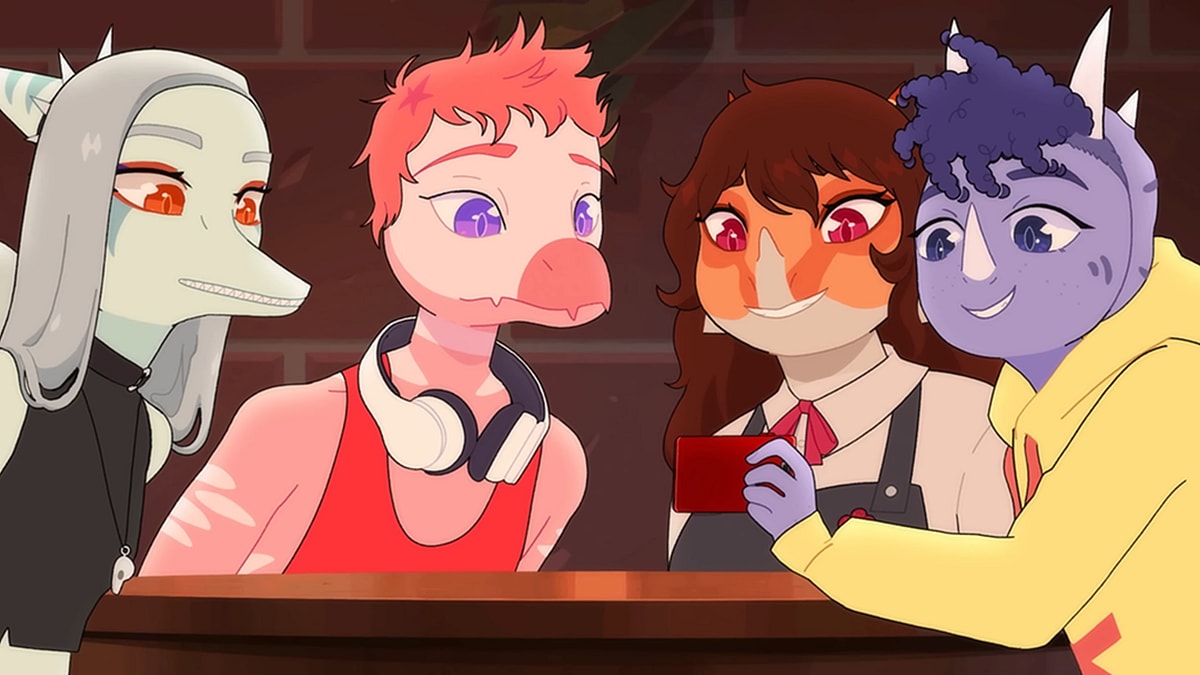
“In that year, we ended up with a lot of people we connected to, and we talked a lot about advocacy, helping people get into the industry, and we also talked a lot about the importance of telling stories from a variety of perspectives, especially
having those writers and creators in the room to help with that,” said Belair. “As we joined new conversations, “We worked on more projects, more people joined our team. In those subsequent years, we grew from a team of only five to a team of 16 incredibly talented people. During that time, as you might imagine, a lot of game teams were looking for guidance, both in terms of narrative but also in terms of learning how to tell diverse stories and feature diverse characters. And so, naturally, because we were kind of in that conversation, we helped them. Throughout the years, again, we worked on tons of games. For most of these, we did writing, story development, and sometimes we just came on and did spot checks.”
“[If] you hyper-focus on narrative and all its parts, and you get really good at it,” the CEO told attendees. “You get really, really specific at it, and you become craftspeople. And funnily enough, as far as this company is concerned, that was actually my end game. I wanted us to become craftspeople. When I was a kid, I learned a lot about Carrie Fisher, and beyond her acting career, she was actually a very respected script doctor in Hollywood. I remember finding that so fascinating and really striking, because quite famously she was someone who struggled a lot with the eye of fame. But it was so comforting and interesting to hear that, in this community of artists and writers, she was deeply respected just for her craft.”
“And if I’m being honest, just as a creative myself, that’s all I’ve ever really wanted,” she noted. “I’ve never wanted to be known by audiences, really. I have never wanted to be known by gamers, certainly. I’ve wanted to be known by game devs and writers, especially. I want teams and studios and writers and creatives to think of us when they need a hand, when they want more support. I want to be a game dev’s game dev, and that’s what I hoped it would be.”
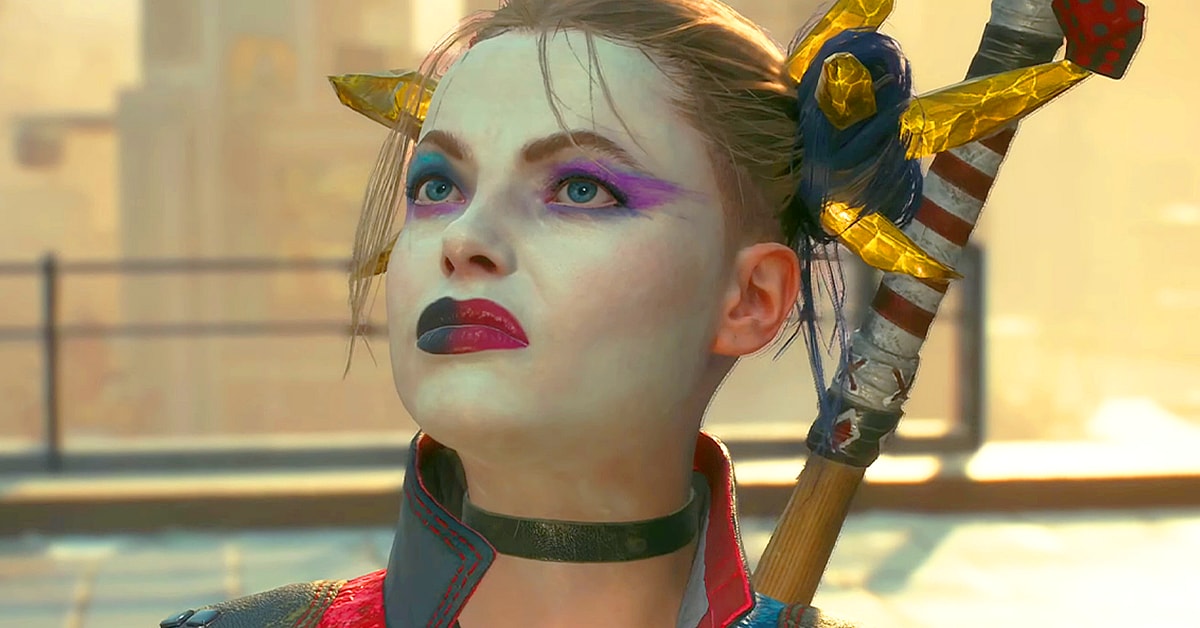
However, despite her building excitement while discussing her own work, Belair then bluntly admitted, “But that is not what happened.”
“Because in October of 2023, we had about 70 games under our belt at the time, but two of them—two very, very big ones—were about to drop within a week of each other,” the narrative consultant recalled. “So on October 23, there was Spider-Man 2, and on October 27, Alan Wake 2. Both are big AAA games, and we had worked on narrative and character for both of them, with literally years of work on Spider-Man 2. And we would finally get to announce them. We were very excited. In retrospect, we were comically excited because we had a couple thousand followers at the time, mostly game devs, and we were like, ‘Okay, it’s time to stand up and be proud of our work. Wow, this is gonna be really nice!’

“I remember thinking that morning as we made these posts, ‘I wonder if anyone’s going to notice that we posted about Spider-Man and also Alan Wake—like, will anyone put it together?'” she added. “Because I think our way of working at Sweet Baby, the kind of teamwork we do on so many different games, is really, really unique. I think it’s really cool. I think people will be excited about it and about our craft. So I decided to do a cheeky Google and see, like, “Hey, had anyone put that together?'”
“The Google search went bad,’ she admitted. “I shouldn’t have done it, because rather than any praise or people going, ‘Wow, how did you do it?’ or just, ‘Hey, a narrative development company? What does that mean? I’m really interested,’ we were instead found by 4chan and the worst people on Twitter.”
“Literally, within a few hours of me seeing that first post, we were not only being accused of “forcing” a Black person into Alan Wake – which, one, is cool but we didn’t do – and also of putting pride flags into Spider-Man’s New York—which again, so good, love to see them, but we were not responsible for them,” said Belair. “Suddenly, we were being told that we were funded by BlackRock, and that actually we weren’t a narrative development company, we were a ‘DEI company’—some kind of vaguely defined censor—and that we were here to use all of the power we had amassed to force companies to go woke.”
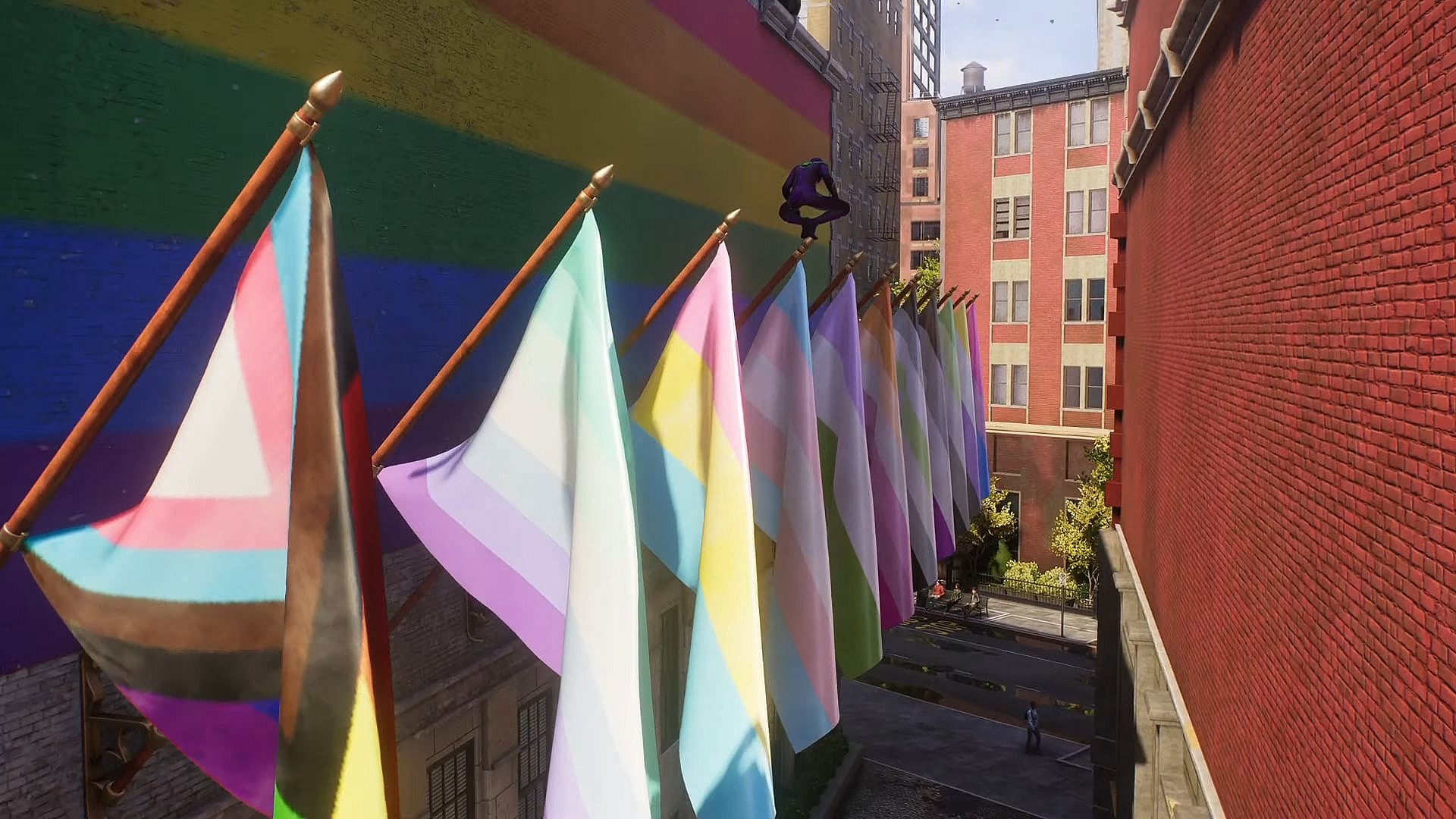
“Suddenly the conspiracy was alive,” Belair told the crowd. “They were finding photos of us, sometimes of our families or our contractors. They weredoxing me and other members of the team. Anyone calling these attacks out as doxing was accused of doxing themselves or lashing out.”
“At its peak, which was somewhere around February or March of this year, we were getting something like 300 emails a day, which, admittedly, some of those are going to be spam or bots or whatever, but they were often accompanied by death threats and threats to our families,” she claimed. “We did have one bomb threat made to the police that they contacted us about. And at best, the nicest thing you would see in some of these spaces was that we were a punchline, but any defenders were really shouted down quite quickly.”
To this end, she then asserted, “In moments when this movement couldn’t dig up another reason to attack us, they would just move on to other groups they perceived to be like us, all while doing the work of erasing those people’s actual jobs and interests and papering over it with that rallying cry of far-right supremacy: ‘DEI’.”

“And as ridiculous and stupid as it all was, I actually was not prepared for the escalation when noted buffoon and Twitter CEO Elon Musk decided that he would chime in with his very cool thoughts,” Belair admitted. “So, this was hard the whole time. Since the beginning, it wasn’t great. But we were receiving countless emails, all this constant hate. It was targeted enough to feel disconcerting even when it was kind of silly. And it was also kind of drowning out the support. But when Elon chimed in, it really made me realize the scale of it because the richest man in the world was suddenly turning
the Eye of Sauron onto 16 people trying to make a pretty modest living in the industry they love, and he was arguing for our collapse.”
“When this happened and it got bigger than this,” she explained, “it made us realize that this was huge. We were being attacked in a massive and coordinated campaign of harassment. And that sucks. But it does get me closer to the question of what happens when you get harassed?”
Moving on to the central thesis of her talk, Belair then declared, “So first of all, just as a spoiler: what happens when you get harassed is it sucks. I can’t recommend it. If I had to rate the experience, 1.5 stars probably? It’s not the best.”
“More specifically what happened during all of this, if I can kind of dig down into this review, is that we lost our voice,” she told the crowd. “We didn’t just lose our voice as a collective, we lost our voices individually. People on our team were either hounded off social media or attacked so consistently that it became frustrating to use. It’s not enjoyable to hop on anywhere and get that wave of hate. So within Sweet Baby, beyond what we do for work, there are authors, comic book creators, TTRPG creators, game designers, and people who have other work they want to share with the world that they should be allowed to share with the world. But just for existing within our company, just for working on the games they do, they were attacked—even contractors, people who literally work with us for a spot check a week or a couple of months. But there was really, really nothing we could do.”

“And as silly as it is, and as little as I miss the current Twitter, as little as I regret leaving it,the loss of frivolity and, frankly, dumb bulls–t is actually a little soupçon of dehumanization,” Belair argued. “And don’t get me wrong. People did defend us. Some very, very great folks, often writers and game devs, people we had worked with, people we had not worked with who could see this thing for what it was. But while I appreciated the defense, and the team appreciated it so, so much, that support is still really hard to feel in the panic of the moment. And so instead, I felt really guilty. I felt responsible. Like, I felt bad—not for doing the job that I love, but for building a space that was meant to be protective and creative for a bunch of people and having it turn into something that, through no fault of our own, saw my friends, my loved ones, my colleagues, and my coworkers viciously and brutally hurt.”
“I felt bad for making a company at all,” she lamented. “I felt bad for believing in it and for speaking on it. People would come up to me, especially at events like GDC, and they would very kindly tell me that they’re inspired by me or by us and by our collective strength and resilience. And I would say, ‘Thank you so much,’ but deeply, I would feel very ashamed. Which, intellectually, I know is wrong, right? We are doing something good. We are writers and designers of tremendous skill and tremendous experience, and we’ve never censored anything nor have we ever wanted to. Frankly, if you really want my opinion, I think largely games could be hornier. I think they should be darker. I think they should be stranger.”
“At the core of my approach here, and the approach we take as a company, I genuinely believe that representation is not censorship, it is innovation,” said Belair. “Diversity in narrative makes things more intense. It can make it more visceral and more real. It doesn’t have to always make something more wholesome or softer. I really do believe that by opening up to new perspectives, by getting folks in the room, we actually push more boundaries, and we get more real. But what happens when you get harassed is that it doesn’t matter what you believe. And what’s also frustrating is that it doesn’t matter what they believe, either. Because so much of this campaign is just misinformation. It’s assumptions and lies about who we are, what we do, and what we want.”
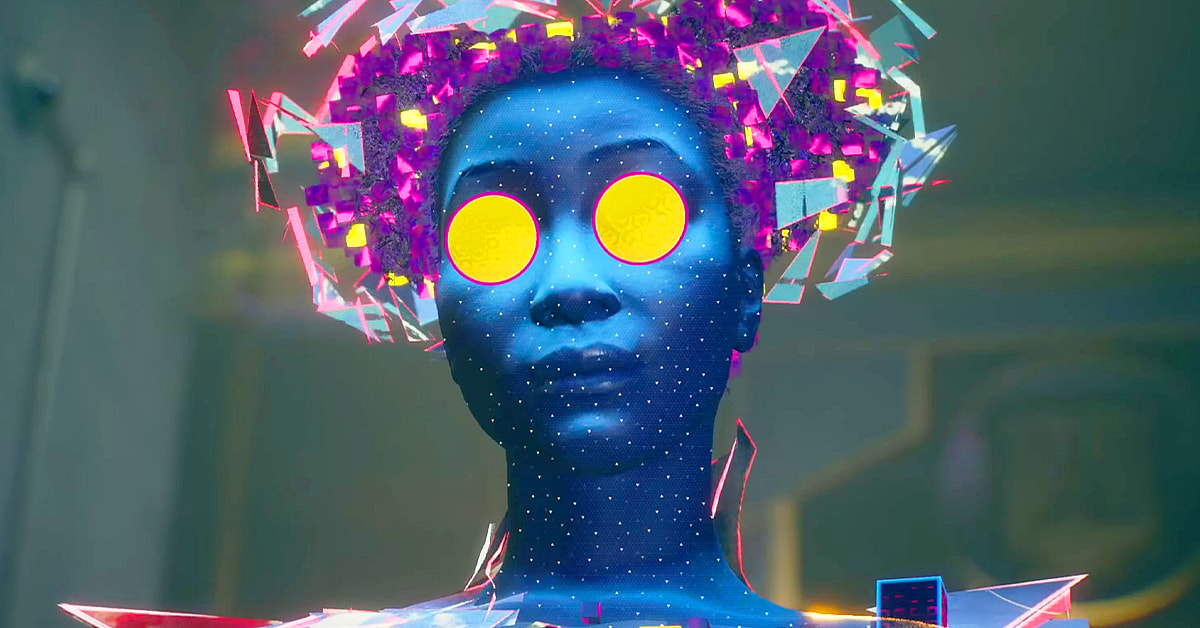
Turning to the audience, Belair asserted, “And that’s the other thing that happens, right? They take away your power in some ways, but they also ascribe to you this enormous power.”
“They will claim that you are rich, that you are backed by shadowy cabals, by government orgs,” listed Belair of the various criticisms that have been leveled towards Sweet Baby Inc. “They claim you have the ability to force their favorite studios to bend to your whim, rather than the truth, which is that studios and teams hire us to make stories better—not woker, but actually better.”
“And believe me, when this first started, I was so worried that studios would stop working with us,” she continued. “I worried we seemed too toxic. I worried we seemed too dangerous, too beleaguered, too much of a risk to work with. But that is not what happened. What happened was that, at least privately, every team we worked with was quite supportive. The external silence, I’ll say, was deafening at times and also frustrating, but such is the way of corporate. And it was still nice, fundamentally, to realize that studios, teams, and individuals still wanted us around and still saw our value. Which, I will say, though, is also a very disorienting experience.”

Inching ever closer to her final thoughts, Belair then explained, “Because what happens when you get harassed is that you realize that most of it is just noise and that nothing functionally or fundamentally changes. People say, ‘I’m so sorry for what you’re dealing with, but could I get that script on Monday?’ And you say, ‘Yeah, it sucks. Anyway, I will get that to you on Monday.’ Because there is no time off. There is no stop in video game production. You can monetize a hate video, but there is no hazard pay for harassment. And we are not, despite what you may have heard, so moneyed that we can just take a break or take a vacation and chill.”
“So by day, we worked, and meanwhile, all around us, the noise continued,” Belair’s story went on. “This is here because I remember one evening, I was coming home, and I was like, ‘All right, I’ve dealt with too much today. I’m just gonna relax by going to the Yakuza subreddit,’ which, I have to say, 99% of the time is a wonderful space. It’s very funny, and the people are pretty nice. But not even thinking, I scrolled past a joke about Sweet Baby Inc. And the thing is, in service of this great subreddit, it was actually well-intentioned. It was not a joke intended to make fun of us; it was intended to make fun of the campaign. But the strangeness of it still, of it being everywhere, of it feeling inescapable but meaning nothing in my day-to-day, was too utterly bizarre. And beyond just having to mute a wonderful, wonderful safe place for myself, I also wanted to quit. I wanted to leave the company. I wanted to do something else.”

“I’ll tell you that running a self-funded business in a very volatile industry is very hard on a good day, especially when you do something with us,” the CEO wound down. “And it’s hard, let alone when Elon Musk is crawling bleary-eyed out of his money pit to tell us that we deserve to go broke. It’s a disaster. But what happens when you get harassed is also that you realize all you have is each other. And you can maybe call it trauma bonding, but when there are no prizes and no funds and no vacations as compensation, and the only thing you have on your plate is suddenly your widely derided work, you also start to make more space for each other.”
“You start to recognize that the work will sometimes feel thankless, but that you still love it,” Belair described of her experience. “And you love it, fortunately or unfortunately, because you get to do it together as a team. And for us, that means we’re doing it as Sweet Baby Inc. What happens when you get harassed is that you forget who you are, but then you remember.”
“We are writers, we are storytellers, we are narrative designers, we are creative, we are passionate, we are funny, and we are doing this because we love it,” she said as her time on stage drew to a close. “We love it so much, in fact, that we’ll do it even through the worst months of our lives because our lives, ultimately, are about stories.”

